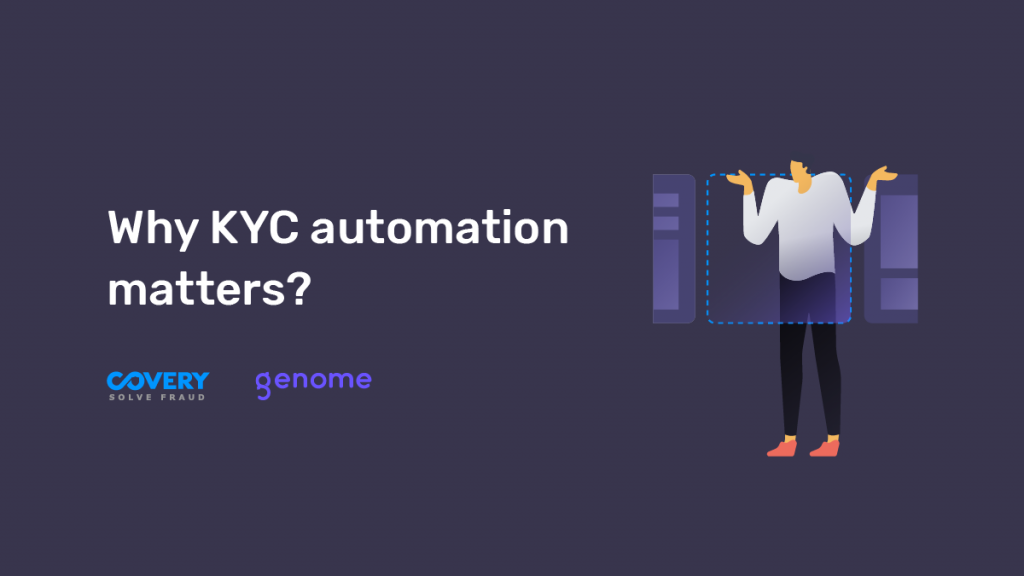Everyone’s interested in fintech these days. Whether it’s investors, people in business, or consumers themselves, technological innovation in the finance sector has finally dragged payments into the 21st century.
Indeed, the adoption of fintech services has rocketed over the last few years, from 16 per cent in 2015 to 64 per cent in 2019, and 96 per cent of consumers are aware of at least one fintech service that will help them transfer money or make payments.
At the end of Q2 2018, there were a total of 440 million contactless payment users worldwide, while experts forecast 760 million users by the end of 2020, according to Statista.
Many applications and fintech solutions are developed with the aim of winning customers over with their trendy, polished interfaces. But payments aren’t a fashion craze, and the most crucial part of any fintech solution will always be security and compliance.
Know your customer, or KYC – a mandatory process that makes companies AML compliant and protects from fraudsters – has three general components: identity verification, due diligence, and ongoing monitoring. These are usually all overseen manually by compliance officers, a time-consuming and expensive process that can end up being a sore point for both businesses and customers.
According to research conducted by Mitek and Consult Hyperion, KYC compliance costs banks €50 million a year. The potential cost of losing just a small percentage of potential new customers to complex manual KYC processes is now as much as €10 million a year. After five years, the cumulative lost opportunity could cost banks in excess of €150 million.
A better way to know your customer
KYC takes too long and causes problems. But there is a better way. We can fix it – better still, we can automate it. Here is a case study of how digital financial services provider Genome obtained an automated its KYC procedure while keeping fraud prevention in one place.
Envisioned by its founders as a “product that will elevate financial routine for individuals and businesses,” Genome is an online finance ecosystem that helps users and merchants registered within the EU with everything related to financial services. Services range from IBAN and merchant account opening to SEPA transfers, currency exchange and online acquiring, and cross-border transfers in multiple currencies. Since Genome is a licensed Electronic Money Institution, it also serves e-commerce, SaaS, software companies, and any businesses working with online payments.
The core features of Genome are available for users and businesses after they pass the KYC procedure. It’s an essential part of the due diligence procedure that safeguards against the company engaging in money laundering and customer risks. For this reason, the Genome team needed a solution that could provide a seamless KYC procedure, allowing them focus on other core processes of their business.
Finding the solution
Genome is an innovative product in terms of features and customer approach, and its attitude when it came to selecting a third-party service provider that would help ensure payment security was also innovative.
The aim was to automate and make coherent the traditional manual banking processes applied to users and businesses. Covery, a one-stop platform that automates KYC processes, had the answers to all of Genome’s requirements. It enabled Genome to automate its KYC procedures, enabling its users and companies to open personal and business accounts, IBANs, merchant accounts, make SEPA transfers, and SWIFT transfers easily and conveniently.
Covery’s full automatisation of the KYC procedure removed any tedious manual requirements from the KYC equation, leading to lower user acquisition costs. It also meant that users didn’t have to be involved in complex checks with third-party watchlist providers to conduct PEPs checks – procedures that are typically difficult, expensive and time-consuming. Integration with a global leader in data intelligence for anti-money laundering enabled Covery to provide Genome with PEPs and sanctions lists checks without any additional integrations.
Ongoing monitoring
Considering the constant changes in global watchlists, Covery checks Genome users automatically on every executed user-step in under 300 milliseconds.
The ongoing monitoring is also combined with Genome user check through the global reputation data network Trustchain. Trustchain contains more than 300 million device reputation records gathered with device fingerprinting technology. “Data fetched during Covery’s KYC procedure helps Genome to analyse user actions deeper, and to create an overall evaluation of users through the whole customer journey,” said says Daumantas Barauskas, COO of Genome. “We use it for more precise fraud prevention and revenue increase.”
A flexible system
Using Covery gave Genome total flexibility in terms of limits. With the rule-based approach, risk analysts set up more than 150 static and dynamic rules to evaluate user activity in different cases using the flexible reaction system on Genome’s side.
Users can see actual accounts and transfer limits, which makes the system transparent and understandable. Moreover, Genome is secured by more than 400 rules preventing fraud. The set-up of a new rule takes between five and 10 minutes.
The full setup took less than two days. As a result, automated KYC and AML removed the risks of human error for Genome, ensuring high data accuracy. In terms of customisation, Genome also now benefits from more than 15 automated business flows and fully customisable risk management, led by rule-based and machine-learning engines.
Genome’s implementation of the Covery platform has since resulted in a 90 per cent efficiency in KYC procedure automation, 98 per cent efficiency in the automation of transfers, higher customer retention, and increased conversion rates.
For more information, click here.
Image provided by Covery




